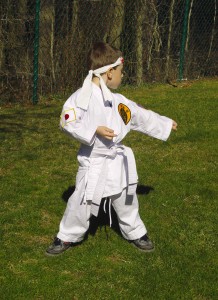 Kids across the country are competing at higher and higher levels in sports, in and out of school. Being a part of a team is great for learning socializing skills and physical activity is good for the body, but are sports emotionally healthy for kids?
Kids across the country are competing at higher and higher levels in sports, in and out of school. Being a part of a team is great for learning socializing skills and physical activity is good for the body, but are sports emotionally healthy for kids?
For many kids the adolescent and teenage years are physiologically devoted to growth both mentally as well as physically. How do sports play into the growth of America’s youth?
Youth sports have long been hailed for their physical as well as emotional benefits by many doctors, and cross training is being endorsed more and more.
The question is, are there negative emotional effects from playing sports?
Canada.com has reported on the emotional impacts of concussions on young athletes and how many doctors and parents overlook the possible long term effects of what sometimes seem to be harmless head bumps.
Anxiety and depression or sometimes-profound personality changes can be the direct result of a concussion.
Dr. Shree Bhalerao, an associate professor at the University of Toronto and Department of Psychiatry at St. Michael’s Hospital, who specializes in traumatic brain injury deals with patients who suffer the effects of head trauma even years after the actual event.
Dr. Bhalerao suggests that too much focus in head traumas is on the physical injury itself and not enough attention is paid to the emotional effects such as depression, anxiety, headaches, lack of concentration, and sadness.
Bhalerao uses the metaphor of a globe to delineate the effects of a head trauma, “You can shake the globe, but all the parts don’t settle in the same way. A huge part (of concussions) is the psychological piece.”
Concussions are caused by a direct hit to the head, neck or face, or by a blow anywhere else on that body that transmits sufficient force to the head. With a blow to the head, the brain is shaken in the skull, triggering an inflammatory response that can damage or irreversibly destroy brain cells.
Most sensitive is the frontal lobe, the part of the brain that’s responsible for memory, emotion, reasoning, judgment and empathy. Therefore, people who have suffered a head injury can lose the ability to control their emotions, says Bhalerao.
He goes on to state that it’s crucial that anyone who starts experiencing emotional or thinking problems after a concussion see a doctor.
“My biggest wish is that more people were aware of this,” he said.
What are your thoughts on head injuries in general?
What about concussions? Are they dangerous even if the injury itself seems harmless?